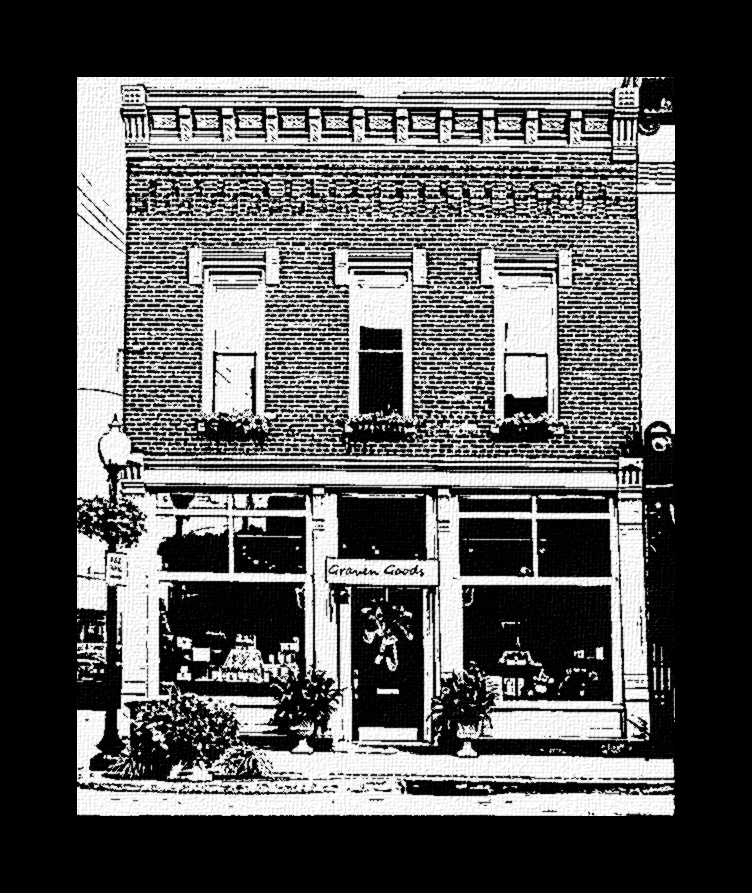Graven Goods: Difference between revisions
| (9 intermediate revisions by the same user not shown) | |||
| Line 4: | Line 4: | ||
<br> | <br> | ||
== '''Business Hours''' == | == '''Business Hours''' == | ||
[[File:Graven Goods Business card.png]] | |||
:Monday 12pm - 10pm | :Monday 12pm - 10pm | ||
:Tuesday By Appt. Only | :Tuesday By Appt. Only | ||
| Line 17: | Line 19: | ||
Graven Goods first opens its doors in the Spring of 1907. Following the 1906 quake many people died and their estates were often closed without heirs and with public auctions. | Graven Goods first opens its doors in the Spring of 1907. Following the 1906 quake many people died and their estates were often closed without heirs and with public auctions. | ||
One man - Maximilian Graves saw an opportunity in this and established his shop in the Castro in a time when it was a multi-ethnic working man's neighborhood. | One man - [[Maximilian Graves]] saw an opportunity in this and established his shop in the Castro in a time when it was a multi-ethnic working man's neighborhood. | ||
The fact that he sold the personal effects of the recently deceased bothered no one and in addition to his legitimate business dealings he also did a flourishing trade in stolen goods - so long as they were taken off of corpses. | The fact that he sold the personal effects of the recently deceased bothered no one and in addition to his legitimate business dealings he also did a flourishing trade in stolen goods - so long as they were taken off of corpses. | ||
| Line 25: | Line 27: | ||
Because of his philanthropy Maximilian Graves became a local figure of significance and his investment in local businesses allowed many household names to rise from obscurity. | Because of his philanthropy Maximilian Graves became a local figure of significance and his investment in local businesses allowed many household names to rise from obscurity. | ||
=== '''1937''' -- ''Under New Management'' === | |||
The shop changed hands on June 5th, 1937. The new owner Pankraz Voss a German emigre purchased the business lock-stock-and-barrel for an undisclosed sum. Neighborhood gossip holds that Maximilian Graves, an elderly man, suffered from a incurable malady and retired to a warmer southern climate for his health. The new owner immediately liquidated the grave-goods on the premises and began importing foreign antiques and curios giving the business a more palatable public facade. | |||
== '''Owner & Operator''' == | |||
[[Pankraz Voss]] | |||
---- | |||
<br> | |||
---- | |||
Latest revision as of 00:28, 12 February 2024
Business Hours
- Monday 12pm - 10pm
- Tuesday By Appt. Only
- Wednesday By Appt. Only
- Thursday 12pm - 10pm
- Friday 12pm - 10pm
- Saturday 12pm - 10pm
- Sunday 12pm - 10pm
Location
History
Graven Goods first opens its doors in the Spring of 1907. Following the 1906 quake many people died and their estates were often closed without heirs and with public auctions.
One man - Maximilian Graves saw an opportunity in this and established his shop in the Castro in a time when it was a multi-ethnic working man's neighborhood.
The fact that he sold the personal effects of the recently deceased bothered no one and in addition to his legitimate business dealings he also did a flourishing trade in stolen goods - so long as they were taken off of corpses.
The shop returned a tidy profit for the better part of three decades. Seven years after opening the shop got a second wind with the outbreak of WW1. Although America wouldn't become actively involved in the Great War until the final year of the struggle, the bodies of American volunteers and those of victims who died in battles fought in the Pacific fed the shop and it's owner a steady supply of grave goods.
Because of his philanthropy Maximilian Graves became a local figure of significance and his investment in local businesses allowed many household names to rise from obscurity.
1937 -- Under New Management
The shop changed hands on June 5th, 1937. The new owner Pankraz Voss a German emigre purchased the business lock-stock-and-barrel for an undisclosed sum. Neighborhood gossip holds that Maximilian Graves, an elderly man, suffered from a incurable malady and retired to a warmer southern climate for his health. The new owner immediately liquidated the grave-goods on the premises and began importing foreign antiques and curios giving the business a more palatable public facade.
Owner & Operator

